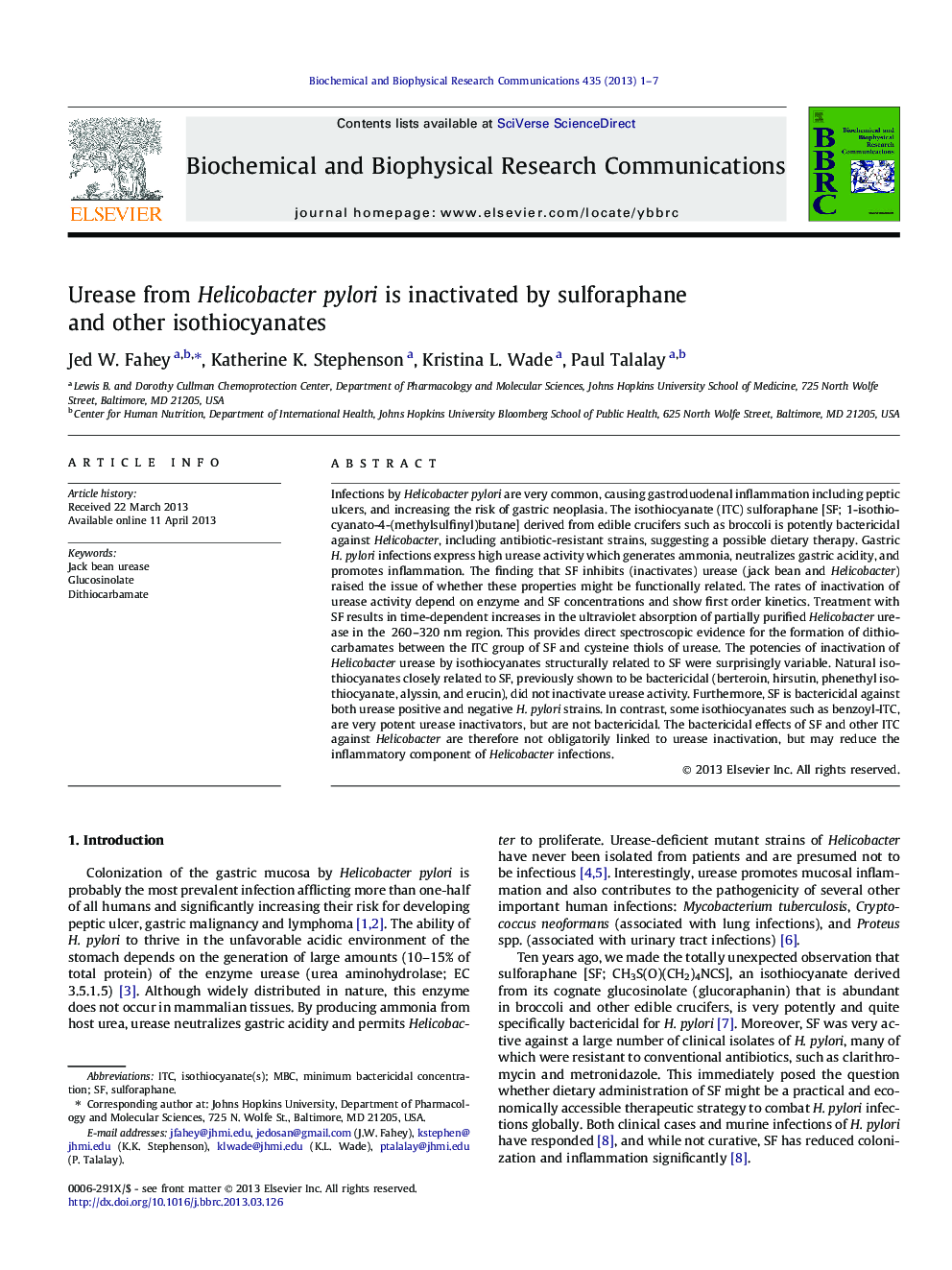| Article ID | Journal | Published Year | Pages | File Type |
|---|---|---|---|---|
| 1928780 | Biochemical and Biophysical Research Communications | 2013 | 7 Pages |
•Sulforaphane, which is bactericidal to Helicobacter pylori, also inactivates its urease.•Kinetic and spectral evidence consistent with cysteine thiol covalent modification.•Urease inactivation has potential to reduce consequences of Helicobacter infection.
Infections by Helicobacter pylori are very common, causing gastroduodenal inflammation including peptic ulcers, and increasing the risk of gastric neoplasia. The isothiocyanate (ITC) sulforaphane [SF; 1-isothiocyanato-4-(methylsulfinyl)butane] derived from edible crucifers such as broccoli is potently bactericidal against Helicobacter, including antibiotic-resistant strains, suggesting a possible dietary therapy. Gastric H. pylori infections express high urease activity which generates ammonia, neutralizes gastric acidity, and promotes inflammation. The finding that SF inhibits (inactivates) urease (jack bean and Helicobacter) raised the issue of whether these properties might be functionally related. The rates of inactivation of urease activity depend on enzyme and SF concentrations and show first order kinetics. Treatment with SF results in time-dependent increases in the ultraviolet absorption of partially purified Helicobacter urease in the 260–320 nm region. This provides direct spectroscopic evidence for the formation of dithiocarbamates between the ITC group of SF and cysteine thiols of urease. The potencies of inactivation of Helicobacter urease by isothiocyanates structurally related to SF were surprisingly variable. Natural isothiocyanates closely related to SF, previously shown to be bactericidal (berteroin, hirsutin, phenethyl isothiocyanate, alyssin, and erucin), did not inactivate urease activity. Furthermore, SF is bactericidal against both urease positive and negative H. pylori strains. In contrast, some isothiocyanates such as benzoyl-ITC, are very potent urease inactivators, but are not bactericidal. The bactericidal effects of SF and other ITC against Helicobacter are therefore not obligatorily linked to urease inactivation, but may reduce the inflammatory component of Helicobacter infections.
Graphical abstractFigure optionsDownload full-size imageDownload as PowerPoint slide
